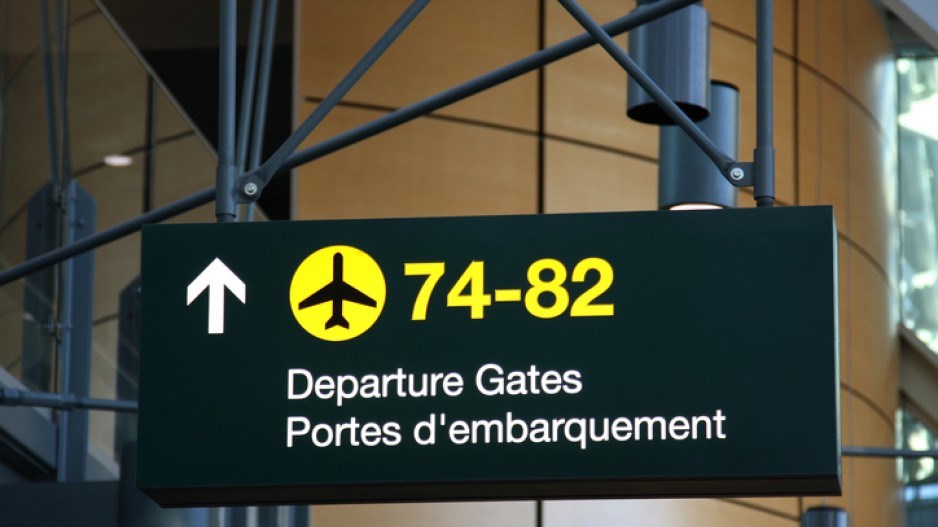Canadians will no longer be relying on proof of vaccination issued by the country’s different provinces when travelling internationally.
The federal government unveiled details Thursday on its long-promised standardized vaccine passport for COVID-19, although it remains unclear when it will launch.
Rather than border officials relying on a mix of different vaccine passports issued by separate provincial governments, the federal vaccine passport will see a common look featuring the Canada wordmark.
Prime Minister Justin Trudeau said all provinces and territories have agreed to issue the standardized passport, while Ottawa will be covering the costs through its own federal budget.
B.C. is not among the eight jurisdictions — five provinces and three territories — to “already have put into use the national standard for proof of vaccinations,” according to Trudeau.
But “all other provinces have agreed and are working hard to come online so that as Canadians look to start travelling again there will be a standardized proof of vaccination.”
He said he expects all provinces to be on board in the weeks to come.
“You’re going to need two at the moment and we’ll see how we go in the months ahead,” B.C. Premier John Horgan said later in the day.
“Obviously everyone would like to have most things done yesterday. It would have been nice to have a federal immunization passport available before now but there were a whole bunch of very good reasons why that wasn’t the case.”
The vaccine info carried on the federal card falls within the domain of Canada’s provinces. The federal card requires more information to be displayed than what is currently available to access via the BC Vaccine Card.
The federal card will display the holder’s full name and date of birth, as well as feature the number of doses the passport holder has received, the vaccine product they received, the lot numbers of those vaccines, the dates they received their vaccinations and a QR code that will give access to their vaccination history.
The vaccine passport can either be downloaded onto one’s phone or printed off. The proof of vaccination can also be used on the ArriveCAN mobile app and website needed for travellers submitting mandatory information when arriving in Canada.
Holders at airports will scan their QR codes at check-in to receive a mark on their boarding passes confirming their vaccination status.
The federal government will require proof of vaccination for Canadian travellers flying on plane or taking trains as of November, potentially leaving some British Columbians who depart right before then in limbo.
“I know the B.C. card will be acceptable for a period of time. I’m not sure for how long,” Horgan said, adding he hopes to have more information in the coming days.
“These are federal rules and better explained by federal representatives.”
American authorities announced last week its land border with Canada and Mexico would open to .
The land border between Canada and the U.S. was initially closed to non-essential travel at the outset of the pandemic in March 2020. Canada reopened its border to fully vaccinated American travellers back in August 2021, but the move was not reciprocated by U.S. authorities.
However, the Americans have allowed Canadians to enter the U.S. on non-essential business via air travel throughout the pandemic.
U.S. authorities require that foreign travellers entering the country must be fully vaccinated by January — be it for essential or non-essential travel.
A negative PCR test from fully vaccinated travellers is not needed when entering the U.S., but Ottawa still requires a negative PCR test within 72 hours of arrival from all travellers entering the country, be it by land or air. Those tests typically range in cost from $150-250 each.
“There’s a whole bunch of question marks in my mind about the testing regime,” Horgan said, adding the idea a three-day-old test taken in Vancouver is going to be good enough coming back over the U.S. land border two days later “doesn’t make sense to me.”
He said the test requirement will make people “think twice” about going for a day of shopping in Seattle and seems to run “counter to the whole point” of reopening borders.



